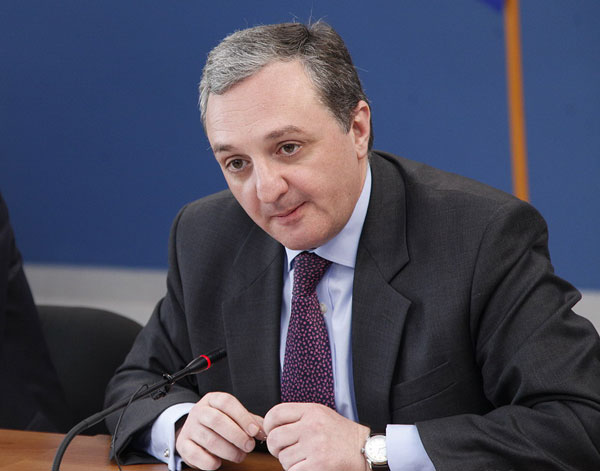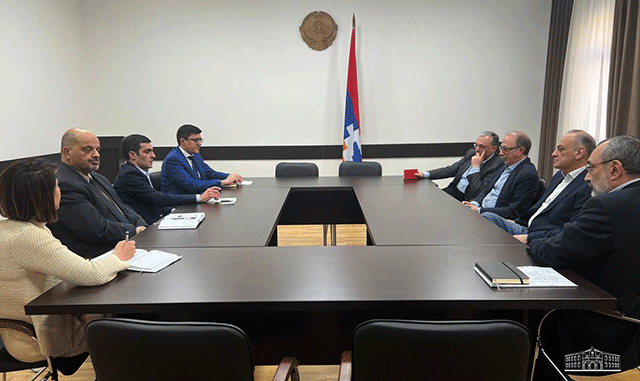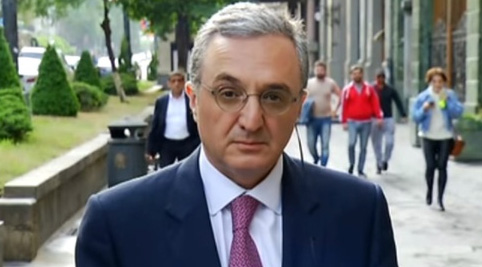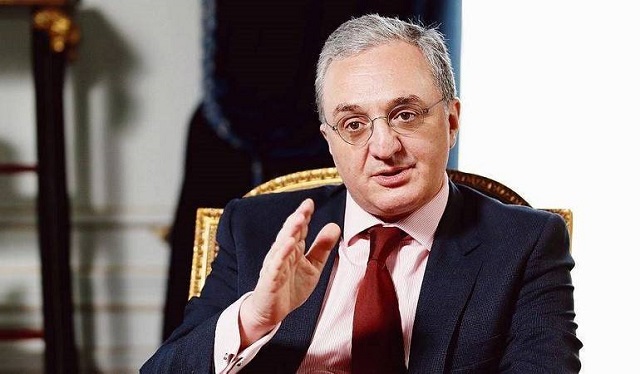According to Zohrab Mnatsakanyan, a Deputy Minister of Foreign Affairs, both Armenia and the EU have political will and interest in not delaying the process.
* Two documents of strategic importance, on which an agreement has almost been reached, are put on the negotiating table between Armenia and the EU – the Association Agreement and the Deep and Comprehensive Free Trade Agreement (DCFTA). Armenia hopes to sign the Association Agreement before the Eastern Partnership Summit to take place in Vilnius in November, as well as to complete the negotiations by the end of the year. Mr. Mnatsakanyan, at what stage we are today, will we manage till those deadlines, will we succeed in signing the Association Agreement by November, and what circumstances may prevent that?
* We have a single document, which is called “Association Agreement” and includes a huge section on establishing the Deep and Comprehensive Free Trade Area (DCFTA); the agreement is a single document. Our negotiating formats are as follows; we have a chief negotiator and four negotiating groups. The part regarding the DCFTA is a negotiating process progressing according to its logic and conducted on our behalf by the Ministry of Economy and on the EU’s behalf by the Directorate-General for Trade of the European Commission. It is part of one big process, organizing which on Armenia’s behalf is regulated by a proper instruction of the President of the Republic of Armenia. The chairman of the council responsible for the negotiations is the Prime Minister, the coordinator is the Minister of Foreign Affairs of the Republic of Armenia, and I am the chief negotiator. With regard to the DCFTA, the coordinator is the Minister of Economy of the Republic of Armenia, and the chief negotiator is G. Melkonyan, a Deputy Minister of Economy. The whole team of the Government of the Republic of Armenia was engaged in the negotiations on the parts of the agreement regarding separate fields in accordance with their occupations – healthcare, tourism, energy, transport, education etc., around 30 fields overall. The team worked very intensively. We have actually completed the part regarding the Association Agreement; at the last stage, we worked on the institutional system necessary for implementation of the agreement, there still are certain parts regarding preparation for implementation of the agreement to agree on before the agreement enters into force. This is a result of mobilization of the whole team, the whole government and a manifestation of political will; we took a quick pace in the negotiations and showed our readiness, and this is appreciated by our EU partners. The negotiations on the DCFTA are still under way, but the dynamics is rather good. Our political goal is to reach the stage, when we will state that the negotiating process on the Association Agreement is completed, before the Vilnius Summit. What does it mean? It is the end of the whole negotiating process, which will be manifested in the preliminary signing of the agreement. According to the proper procedure, the text of the agreement should go through the examination of both sides’ lawyers, linguists, and translators. The procedure requires patience, because according to the procedure, at least 10 months will be required between the preliminarily signing and the signing.
* And what should be done in the meantime?
Read also
* In the meantime, the agreement should be translated into the languages of more than twenty EU member states, go through the second stage of clarifying the text, after which it will be signed and will enter the phase of ratification, i.e. the agreement should be ratified by the parliaments of the EU member states. Two-three years on average will be required, in order that the agreement factually enters into force. However, we will not sit idly by in that period. Talking into account all this, we try to establish a circle with our EU partners, which will allow us to start working on implementation of the provisions of the Association Agreement before it enters into force. That is the very Association Agenda, according to which we have already started to work. It will be a document on implementation of the provisions of the Association Agreement and will replace the Armenia-EU Action Plan within the framework of the European Neighborhood Policy (ENP). Thus, new actions, which stem from the Association Agreement, will be included in it. Both we and the EU have enough political will and interest in avoiding any obstacle and delay in the process.
* As a result of signing the agreement with the EU, the standards in all the fields will have to be in line with the European standards – modernization of the economy, competition in business, elimination of monopolies – i.e. we will have to adopt the European legislation. This also suggests that a lot of effort will be needed to explain, to present the reforms to the businessmen, consumers and society in general, in order that it is clear what important documents Armenia is going to sign, and that there is no impression that they are “ordinary” agreements. Mr. Mnatsakanyan, what work is being done on making the agreement known, and please give examples in a few fields, in order that we have conception of what the word “reform,” which is one of the most exploited ones in our country, means?
* You talked about our current priorities in this question of yours, because talking about the work with society on the provisions of the Association Agreement a year ago would have been a bit early. The Association Agreement is really quite a unique one, because it is not just about cooperation between the parties, but Armenia takes on an obligation by that to instill the EU legislation and practice in various fields. How will it impact people’s lives? Besides the text of the agreement itself, we have also negotiated on the timetable for implementation of hundreds of EU legal acts (directives and regulations), i.e. what period one will need for this or that legal act, in order that it is instilled into our system, accepted and implemented, because there are such legal acts that require institutional development and investment of necessary financial means. The EU, in its turn, expresses readiness to contribute to implementation of the provisions of the agreement by the Republic of Armenia, using the existing financial instruments. Those thousands of procedures will concern very topical issues, for example, travel packages in the field of tourism, security in the field of food industry, building roads and car speed limits in the field of transport, etc. This is the substance of the Association Agreement; it will entail implementation in people’s everyday lives. However, it is quite hard to communicate what you realize, see; this is a challenge to a certain extent. For example, when we travel around Europe, walk down the streets, drive a car, and often notice, regardless of which European town it is, that a certain system operates, it hints at the similarity of standards. We want this, i.e. a country, which develops according to certain norms. The Association Agreement also mentions human rights, democracy and free trade. We currently discuss two very important issues, one of which is implementation of the Association Agreement. For example, proper laboratories for food security are needed according to the new standards, which will be recognized by the EU, as a result of which our products will be able to enter the EU market without additional difficult procedures, which we are going through now, in order to prove that this or that product is in line with the EU standards. The guarantee given by the new laboratory will already be accepted, and the entrepreneur will enter the internal EU market without obstacles. Huge legislative work awaits the parliament too, since those laws will enter the parliament. It is essential for us to understand what system we should build to manage all this. Various countries have undergone their experiences. We work with our European partners. We should take into account our unique features, in order to realize, find the right way of management for us. The next step will be the work with society. The Association Agreement is reform, is development of the country’s model, but reform also means changes, with which certain parts of society might be discontent, but we should think of it as normal; those are natural phenomena. Civil society is a very important partner in our work with society. Civil society plays a unique role in implementation of the Association Agreement.
EMMA GABRIELYAN
Aravot Daily






















































